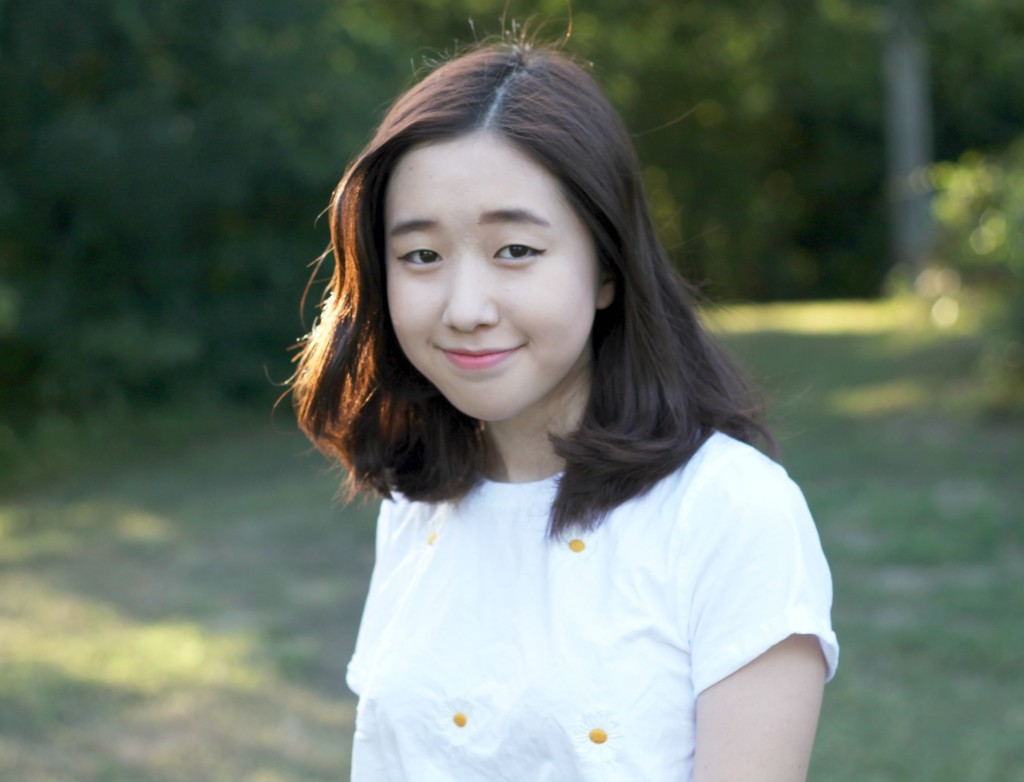by June Jeong, staff reporter
When I first started elementary school, I always ate the lunch my mom made, neatly packaged Korean food, placed in little plastic Hello Kitty boxes. The smell of rice and seaweed was comforting because it was identical to that of our kitchen. I loved wearing my hair in a messy bun high atop my head with a cute pin through it, Korean style. My mom used to call it my “princess hair.” As a young child, I was incredibly proud about my ancestry and my family’s customs.
As time passed, however, I gradually began to notice that I didn’t seem to belong with the other children, nor did they seem to really want me around. On the day of my school’s Culture Festival, all the frenetic second graders were buzzing with excitement, and I was no exception. I wanted to make Korean desserts for my classmates, so the night before the presentation, my mother and I stayed awake all night, molding little cakes out of sticky dough. I went to bed excited and ready for the morning to arrive. But no one asked about my culture; everyone was too busy exploring Europe. No one tried any of the food I had spent hours making. That afternoon, I went home and bawled my eyes out. I yelled at my mother and told her that I hated being Korean.
After that traumatic experience, I consciously decided to suppress and hide my Asian roots. I ceased to embrace my culture after that year. I no longer wore my hair up. I didn’t want Asian food in my lunch anymore because I knew it would attract unwanted attention; instead, I ate PB&J’s and turkey subs. I stopped hanging out with my Korean friends, and I hated inviting my white friends over because I knew they’d be uncomfortable hearing my mother’s broken English and taking off their shoes in our house.
Over time, it became a twisted goal of mine to become stereotypically “American,” to conform and be merely one of the masses so I would never again be set apart or treated as inferior. My culture and my descent became a mortifying reminder I wanted to store away forever. In a country which so proudly declares itself a “melting pot” and a cultural fusion, I wanted to be like everyone else for a very long time.
However, over the past few years, I have come to appreciate and love not only my own Asian descent but also a beautiful culture. This summer, I had the opportunity of a lifetime to hear my relatives’ stories and struggles for the first time. I listened to the accounts of my ancestors. I learned about the direct effects of Japan’s invasion on my family and was also reintroduced to the exotic and extravagant variety of Korean cuisine. It was a pleasant, wonderful experience, but there were also times during my vacation when I felt genuinely guilty about my own happiness and luck in the U.S compared to my mother’s. We had all come to Texas as a family to start a better life, but I was the only one who found a home.
People who aren’t immigrants, including myself, often have trouble even comprehending the myriad of difficulties faced in immigrant lives. My mother struggles sometimes with simple tasks such as ordering pizza over the phone and talking with my sister’s teachers at Parent-Teacher conferences. She has told me in exasperation how frustrating it is to know exactly what you want to say in one language but not being able to say it clearly in another. Although my mom may speak with an accent, she most certainly doesn’t think with one.
Unfortunately, this isn’t a rare problem. Immigrants often struggle with the English language, which makes it our job, as the second-generation, to tell their stories for them. And while many of my American peers dread attending school every day, for the vast majority, living in the United States with high education rates and a good job market is an unobtainable fantasy and the only prospect at a happier life. Like my father, some people willingly give up a secure lifestyle with their families and friends in their native countries simply to start at the very bottom of the totem pole here. Ironically, their hard work is greatly under-appreciated and sometimes even mocked.
The tough but honest reality is that if we, as the children of immigrants, fail to educate and openly inform our non-immigrant peers about our cultures, our roots will fade away and eventually die. The best method to truly preserve our heritage lies in open-mindedness and esteem, not only in regards to ourselves, but also to our parents and older generations. If we aren’t proud of our parents and our own cultures, complete strangers have absolutely no reason to respect our customs. As members of a relatively wealthy country, we must acknowledge that the privilege of being American does not make us superior to citizens of other, less-developed countries.
Contrary to what I thought in elementary school, being American is not simply about looking a certain way or engaging and participating in stereotypically “white” traditions. In fact, United States can never be a true melting pot if everyone continues to conform to Western ideals. By expressing pride in the very core of who we are and where we come from, perhaps this country will someday be truly diversified and welcoming toward cultures from all over the world.



This article rocks and is applicable to any culture…go June
I can relate!
Coolest of the cool. You go June
I really enjoy it reading your article, because I also had that experience, congratulations June,you rock it!